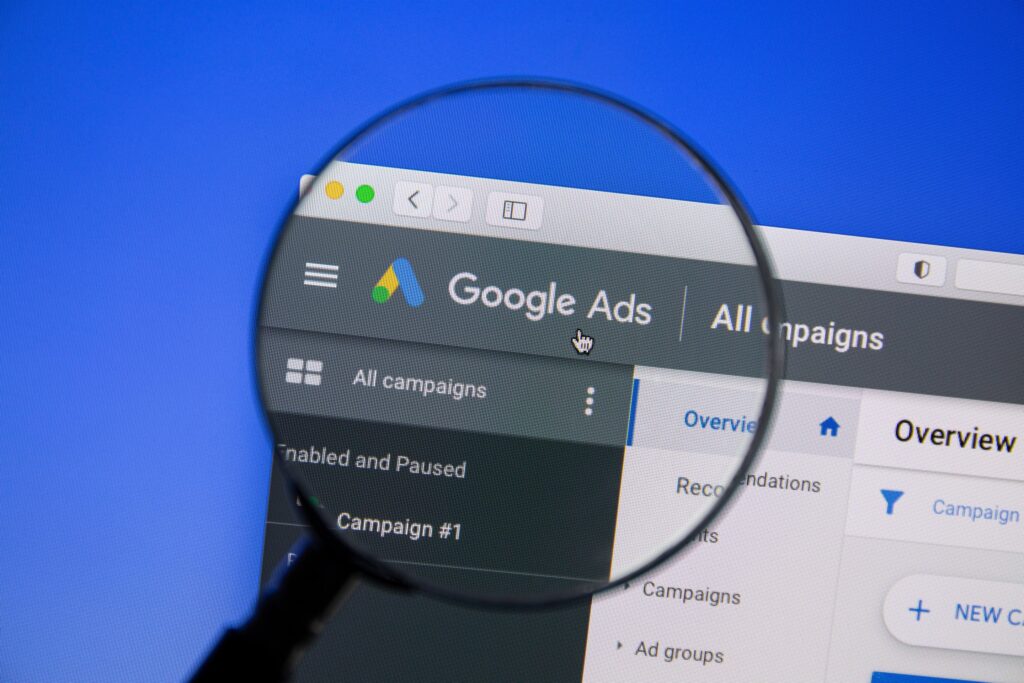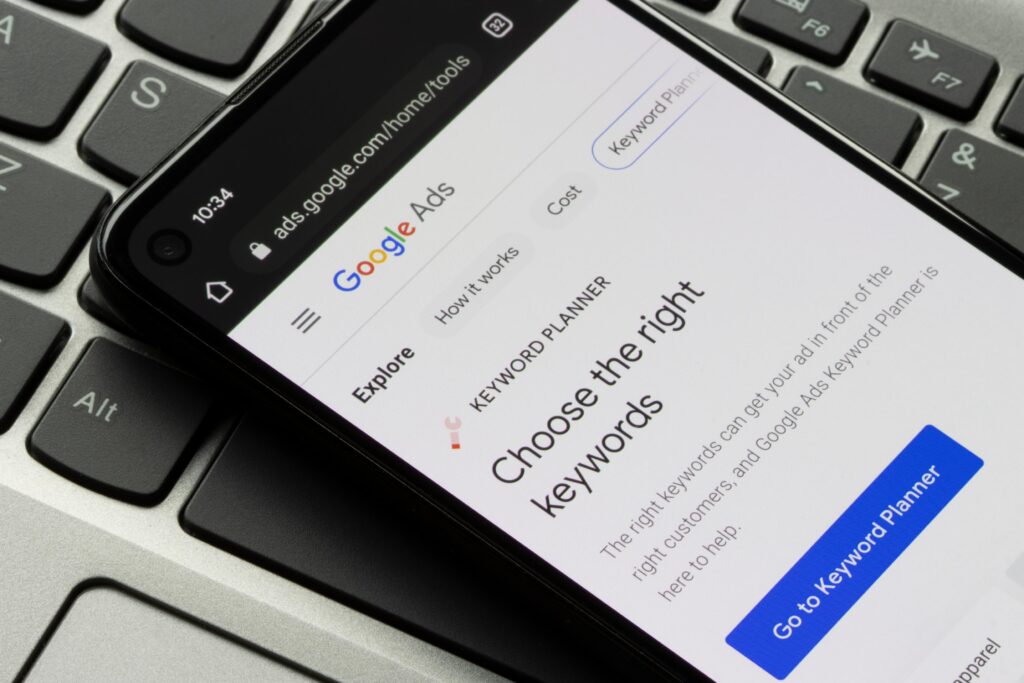You can spend a lot of money on Google Ads and still wonder why nothing’s converting.
Spoiler: It’s probably not your product. It’s your keyword strategy.
Most advertisers focus too much on getting clicks—but clicks don’t pay the bills. If those visitors aren’t ready to buy, sign up, or take action, you’re just lighting your budget on fire.
That’s why you need a smarter approach to PPC keyword targeting—one that’s built around real user intent, not just search volume.

Let’s walk through the strategies that actually bring in qualified leads, real conversions, and better ROI.
Strategy 1: Choose High-Intent PPC Keywords That Drive Conversions
The biggest mistake in paid search? Targeting keywords that get traffic but no action.
High-converting PPC keywords are the ones that match what your audience wants at the exact moment they want it.
Start by identifying search intent:
- Informational: “what is PPC” (not ready to buy)
- Commercial: “best PPC agency” (researching options)
- Transactional: “hire PPC expert near me” (ready to convert)
Focus your budget on commercial and transactional keywords—where users are actively comparing solutions or ready to make a move.
Use tools like:
- Google Keyword Planner
- Ahrefs or SEMrush
- Search terms from your past campaigns
- Answer the Public (for long-tail ideas)
Pro tip: Start small, go deep. You don’t need hundreds of keywords; you need the right ones.
Strategy 2: Use Google Ads Keyword Match Types to Target the Right Searches
In Google Ads, not all keyword matches work the same way. Your match type controls how closely a user’s search needs to match your keyword. Here are the different keyword match types:
Broad Match
- Shows for loosely related searches
- High impressions, low precision
- Good for early discovery, bad for conversions
Phrase Match
- Shows searches that include your phrase
- Balanced reach and control
- Great for scaling winning keywords
Exact Match
- Shows only close variations of the exact keyword
- Most precise targeting
- Best for high-intent keywords that you know will convert
A best practice is to use exact match for high-intent keywords and phrase match for expanding your reach. Avoid broad match unless you have solid negative keywords in place.
Strategy 3: Use Negative Keywords in Google Ads to Save Budget and Improve ROI
Negative keywords will be your PPC campaign’s secret weapon.
They tell Google what you don’t want to show up for, which helps prevent irrelevant clicks and wasted spend.
Examples of Negative Keywords:
- Selling paid tools? Add “free” as a negative keyword
- Offering services for businesses only? Exclude “for students” or “DIY”
- Targeting premium customers? Block “cheap” or “low cost”
Use the Search Terms Report in Google Ads to find real searches triggering your ads. Add the irrelevant ones to your negative list fast.
The more you filter out unqualified traffic, the more efficient your ad spend becomes.
Strategy 4: Branded vs. Non-Branded PPC Keywords
There are two main types of keywords in Google Ads:
- Branded keywords: include your business name (e.g., “Nerd Rush PPC”)
- Non-branded keywords: general terms (e.g., “best PPC agency”)
When to use branded keywords:
- Protect your brand from competitors bidding on it
- Capture people who already know you
- Typically low-cost, high-converting
When to use non-branded keywords:
- Reach new audiences
- Target broader market searches
- Usually more expensive and competitive
Pro tip: Run both—but measure them separately. Branded traffic can inflate your conversion numbers if you’re not tracking carefully.
Strategy 5: Align PPC Keywords with the Sales Funnel for Higher Conversion Rates
Not every searcher is ready to convert right away. Some people are just starting their research, while others are comparing options or ready to make a decision now. That’s why your PPC keyword strategy should match the stage of the sales funnel your audience is in. Start by thinking about the different phases:
Awareness Stage
In the awareness stage, people are looking for general information. These are searches like “how does PPC advertising work” or “what is Google Ads.” These users are just starting out, so educational content like blog posts or videos is a better fit than a sales-heavy landing page.
Consideration Stage
In the consideration stage, people are comparing solutions. They might be searching for terms like “best PPC agency for small business” or “top Google Ads consultants.” At this stage, your ad should link to a page that clearly explains your services, shows comparisons, or answers common objections.
Decision Stage
Finally, in the decision stage, searchers are ready to take action. These are the “hire PPC expert now” or “get a Google Ads audit” type of queries. They’re looking for a clear next step, so your landing page should focus on CTAs, contact forms, and ways to convert immediately.
Matching your keywords and your landing pages to where someone is in the funnel helps you move people from search to sale without friction. It’s one of the simplest ways to improve your PPC conversion rates without spending more.
Strategy 6: Combine Location and Device Targeting with PPC Keyword Strategy
If you’re running local or service-based campaigns, combine your PPC keywords with location targeting to get more qualified leads.
Examples:
- “Google Ads consultant in Denver”
- “PPC agency for real estate in Texas”
Tips:
- Use location-specific keywords in your campaigns
- Geo-target your ads to only show in those regions
- Adjust bids by device type (desktop vs. mobile) depending on performance
Smart layering = stronger targeting = better results.
Strategy 7: Optimize PPC Keyword Performance with Ongoing Testing and Analysis
Even the best keyword list needs maintenance.
Keep an eye on:
- CTR (click-through rate) – Is your ad copy attracting clicks?
- CPC (cost-per-click) – Are you paying too much?
- Conversion rate – Are your keywords bringing in the right people?
- Quality Score – Better scores mean lower costs and higher rankings
Test regularly:
- Rotate new ad copy
- A/B test landing pages
- Try variations of high-performing keywords
Keep what’s working. Cut what’s not. This is how PPC gets profitable.
How a Smarter PPC Keyword Strategy Improves Conversions and Lowers Ad Costs
PPC isn’t about spending more. It’s about spending smarter.
A strong PPC keyword targeting strategy helps you:
- Reach people who are actually ready to convert
- Avoid wasting budget on bad clicks
- Drive better leads and more sales without increasing ad spend

The best part? You don’t need to be a Google Ads wizard to make it work. Just follow the steps, stay focused on intent, and let the data guide you.
Need help building a Google Ads keyword strategy that actually converts?
Nerd Rush helps brands like yours create paid search campaigns that turn clicks into customers. Let’s build something smarter together.





